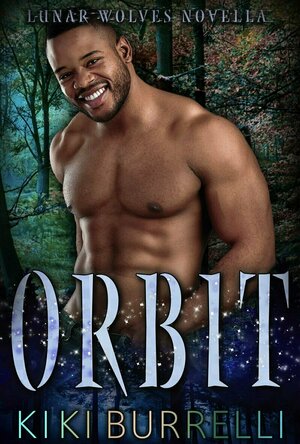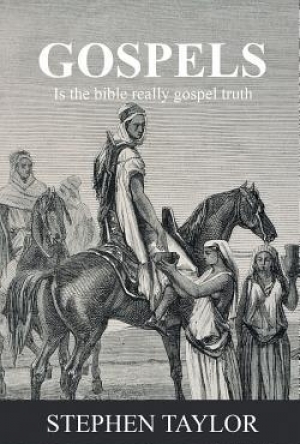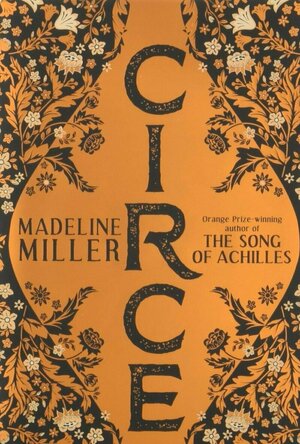Merissa (13742 KP) rated Orbit: A Lunar Wolves Novella in Books
Jul 4, 2023
This is a short novella and, for me, you really didn't learn anything about the world or the characters so having some knowledge would have been helpful. Callum and Vaughan were a cute couple but also a paradox. On the one hand, they communicated nicely. Callum, in particular, helped Vaughan with his social anxiety. But then, on the other, neither of them talks when there's a problem, which I found odd, especially when it could be linked to said social anxiety.
The ending is quite abrupt. I'm guessing we will see more of them in future books but, as a novella, it's more of a meet-cute and not much more.
A good read but I would definitely recommend reading the series.
** same worded review will appear elsewhere **
* A copy of this book was provided to me with no requirements for a review. I voluntarily read this book; the comments here are my honest opinion. *
Merissa
Archaeolibrarian - I Dig Good Books!
Jul 4, 2023
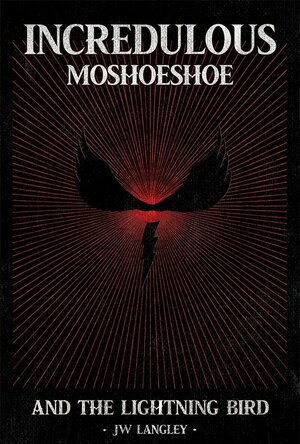
Incredulous Moshoeshoe and the Lightning Bird
Book
Nelson Mandela is about to die. Again. Leftist militants and white nationalists prepare for war...
horror urban fantasy thriller bookbuzz gothic

Lake of the Spirit Bear
Book
Does your child have a hunger for knowledge and facts which you want to feed while at the same time...
children's book children bookbuzz

The Alchemist: A Fable About Following Your Dream
Book
A global phenomenon, The Alchemist has been read and loved by over 62 million readers, topping...
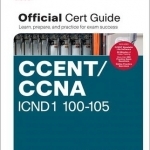
CCENT/CCNA ICND 100-105 Official Cert Guide
Book
Trust the best-selling Official Cert Guide series from Cisco Press to help you learn, prepare, and...
Is the Bible really gospel truth? This is the question the honourable, academic Robert Babcock aims to find out on his quest to find the earliest copies of the gospels in order to prove the reliability of the story of Jesus as recounted in the King James Bible. However, this is not the key focus of Stephen Taylor’s fictional novel, Gospels. The main character is the perfidious John Campbell-John, a rogue, imposter and swindler who flees 19th-century England in an attempt to escape from his debts.
John meets the magnanimous Robert in Venice and, despite being polar opposites, become firm friends. After being honest for the first time in his life, admitting to owing thousands of pounds in gambling debts, Robert offers John the opportunity to accompany him on his quest through the deserts of Egypt. John accepts and the pair finds themselves on an adventure of discovery and personal redemption.
John and Robert make an unlikely but excellent team. Robert’s knowledge of the Bible and ancient history is vital, however, John’s propensity for falsehoods and cunningness gets them out of a few scrapes and tricky situations. Nonetheless, it is difficult for John to give up his old ways and his insular behaviour threatens to get them in more trouble.
Fortunately, Robert’s humility begins to influence the young scoundrel, as does his penchant for historical artefacts. As the story progresses, John begins to leave his past behind and becomes interested in Robert’s work, learning new things about Egyptian culture and the origins of the Bible. However, when a new gospel comes to light that threatens the whole of Christianity, Robert does not know what to do; and only John can give him counsel.
John Campbell-John is a character that the author introduced in a previous book. However, the timelines are not sequential, therefore Gospels is a stand-alone novel. The time frame for this book needed to be set in 1835 to correspond with historical truths. Although Robert’s discovery of a Gospel of Thaddeus Jude is an invention of the author, the quest itself is based on the journeys of three 19th-century Bible hunters. Stephen Taylor has conducted an enormous amount of research, including the biographies of Robert Curzon, Constantin von Tischendorf and Émile Amélineau who, on separate occasions, sought the same knowledge as the fictional Robert Babcock.
Despite being titled Gospels, the novel, for the most part, focuses on John Campbell-John and his wicked ways. Through a first-person narrative, John explains his past, his betrayal of a friend, and his addiction to gambling. Initially, he has no qualms about his behaviour and acts only for himself and his selfish greed. Whilst Robert goes in search of knowledge, John goes on a journey of redemption, coming to terms with his previous wrongdoings. However, acknowledging these faults is not enough, he needs to turn away from these roguish ways.
It is disappointing that the narrative does not focus more on the gospels, both real and imagined. There was enormous scope for an in-depth look at the life of Jesus and the inconsistencies in the Bible. The fictitious Gospel of Thaddeus Jude evokes a similar reaction in Robert as the Non-Canonical Gospel of Thomas found in the 19th-century had on many devout Christians. There was so much potential with this direction of thought, however, the author passes over it in preference to the life of John Campbell-John.
Slow to begin but increasingly interesting as it progresses, Gospels is a book of many themes. History, both 19th-century and ancient; religion, although not a Christian story; and achievement and absolution combine together to produce a unique tale that takes the reader from the back alleys of London to the River Nile and the deserts of Sinai. A subtle clue in the prologue keeps readers alert as they await the conclusion of the adventure – an ending that ambiguously reveals whether John moves on from the follies of his past.
Is the Bible really gospel truth?</i> This is the question the honourable, academic Robert Babcock aims to find out on his quest to find the earliest copies of the gospels in order to prove the reliability of the story of Jesus as recounted in the King James Bible. However, this is not the key focus of Stephen Taylor’s fictional novel, <i>Gospels</i>. The main character is the perfidious John Campbell-John, a rogue, imposter and swindler who flees 19th-century England in an attempt to escape from his debts.
John meets the magnanimous Robert in Venice and, despite being polar opposites, become firm friends. After being honest for the first time in his life, admitting to owing thousands of pounds in gambling debts, Robert offers John the opportunity to accompany him on his quest through the deserts of Egypt. John accepts and the pair finds themselves on an adventure of discovery and personal redemption.
John and Robert make an unlikely but excellent team. Robert’s knowledge of the Bible and ancient history is vital, however, John’s propensity for falsehoods and cunningness gets them out of a few scrapes and tricky situations. Nonetheless, it is difficult for John to give up his old ways and his insular behaviour threatens to get them in more trouble.
Fortunately, Robert’s humility begins to influence the young scoundrel, as does his penchant for historical artefacts. As the story progresses, John begins to leave his past behind and becomes interested in Robert’s work, learning new things about Egyptian culture and the origins of the Bible. However, when a new gospel comes to light that threatens the whole of Christianity, Robert does not know what to do; and only John can give him counsel.
John Campbell-John is a character that the author introduced in a previous book. However, the timelines are not sequential, therefore <i>Gospels</i> is a stand-alone novel. The time frame for this book needed to be set in 1835 to correspond with historical truths. Although Robert’s discovery of a Gospel of Thaddeus Jude is an invention of the author, the quest itself is based on the journeys of three 19th-century Bible hunters. Stephen Taylor has conducted an enormous amount of research, including the biographies of Robert Curzon, Constantin von Tischendorf and Émile Amélineau who, on separate occasions, sought the same knowledge as the fictional Robert Babcock.
Despite being titled <i>Gospels</i>, the novel, for the most part, focuses on John Campbell-John and his wicked ways. Through a first-person narrative, John explains his past, his betrayal of a friend, and his addiction to gambling. Initially, he has no qualms about his behaviour and acts only for himself and his selfish greed. Whilst Robert goes in search of knowledge, John goes on a journey of redemption, coming to terms with his previous wrongdoings. However, acknowledging these faults is not enough, he needs to turn away from these roguish ways.
It is disappointing that the narrative does not focus more on the gospels, both real and imagined. There was enormous scope for an in-depth look at the life of Jesus and the inconsistencies in the Bible. The fictitious Gospel of Thaddeus Jude evokes a similar reaction in Robert as the Non-Canonical Gospel of Thomas found in the 19th-century had on many devout Christians. There was so much potential with this direction of thought, however, the author passes over it in preference to the life of John Campbell-John.
Slow to begin but increasingly interesting as it progresses, <i>Gospels</i> is a book of many themes. History, both 19th-century and ancient; religion, although not a Christian story; and achievement and absolution combine together to produce a unique tale that takes the reader from the back alleys of London to the River Nile and the deserts of Sinai. A subtle clue in the prologue keeps readers alert as they await the conclusion of the adventure – an ending that ambiguously reveals whether John moves on from the follies of his past.

Create Apps Without Programming!
Business and Productivity
App
This guide is about how to effectively outsource app development. It does not create apps for you. ...

Voice Answer
Business and Reference
App
Voice Answer gives answers on many topics and can assist you with a lot of tasks. The stunning 3D...
postapocalypticplayground (27 KP) rated Circe in Books
May 29, 2018
This was my first foray into ancient mythology and I had not read the Song of Achilles first, which I don’t think really matters but it’s likely there will be parity between the tales at some point. I did however, find that this book was really accessible for those who had a little knowledge. Most people know Zeus and Athena and many will know the stories of Icarus and Deadalus, and Theseus and the Minotaur, and by having just that little bit of understanding made the book all the more joyful to read.
Circe is a tale told in retrospect, a tale of a goddess in exile. Throughout her hundreds of years she is tested and put through trials, often lonely, but not always – and taking the time to learn all that she can about what she truly is, not just a goddess but a witch with a great power. I found it it was a story which ebbed and flowed, much like her life on her island of Aiaia. There was often a great deal to love, I enjoyed her interactions and reactions to what she learns and also the calmness about her time alone and the knowledge that she has committed wrongs that will endure as a result of her vanity. I hate to use the Journey word but that it what this story comes down to – as an immortal however, she is a lot more stubborn and has many hundreds of years longer to learn from what has come before, but there is learning and catharsis.
However there was just a little bit too much time spent getting to the place she gets to. I devoured the first 250 pages, I loved that it was a new genre to me and I was enjoying what I was reading, however, I found the last section lagged and it felt that it was a little repetitive. She’s stuck on an island so I get that there wasn’t much else to do but sit and wait for people to come to her but I felt that the final section, which was the most poignant could have been wrapped up a little better and without the slight ick factor that I felt about a certain turn of events.
I give this 4* the first 250 pages were 5* all the way but I felt it just stumbled at the last section which was a shame.
